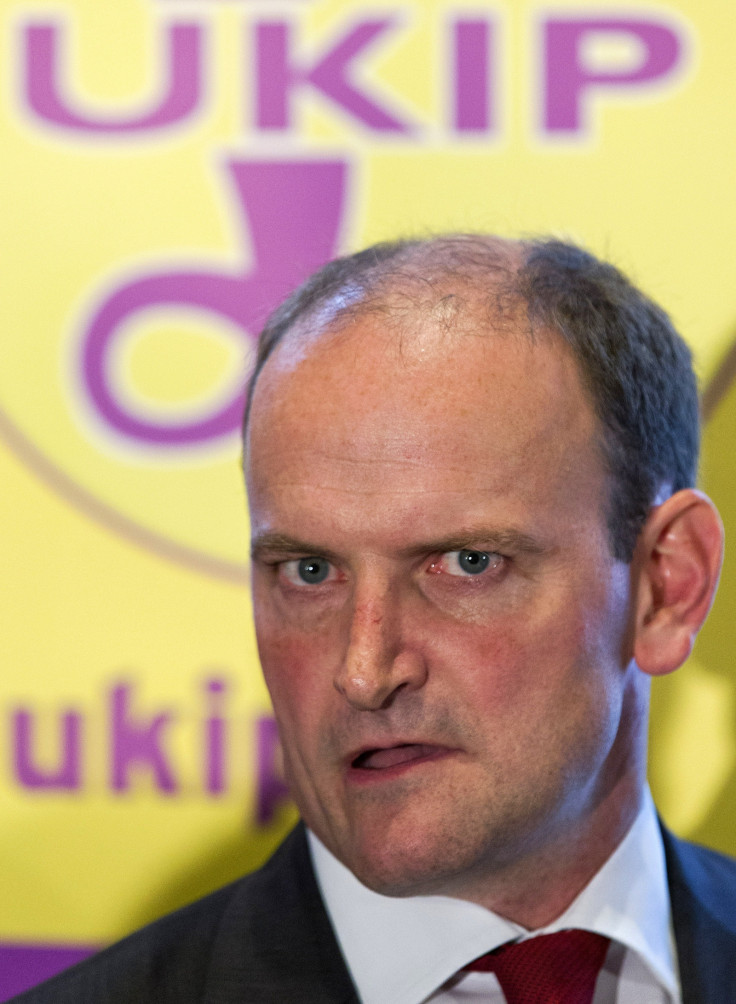David Cameron's Biggest Threat: The Tories Who Want Him to Lose the Election

As each new Euro panic grips the Tory party, David Cameron's ultimate weapons against Ukip leader Nigel Farage - his referendum pledge and warnings about letting Labour in - look less and less like a nuclear deterrent and more like a five penny squib.
Deploying these weapons has had some limited success in the past but ultimately did nothing to stop Douglas Carswell jumping ship and has clearly had no effect on the Clacton voters or others supporting Ukip in the polls.
And it hasn't stopped backbencher Chris Kelly announcing he will be stepping down at the next election after a single term and offering his support for Carswell.
In fact, Carswell has gone so far as to say in answer to that Cameron warning: 'So what.' As far as he is concerned, a Cameron government and a Miliband government would be interchangeable on the issues that matter to him, principally the EU, immigration and parliamentary reform.
The other so-called "irreconcilables" on the Tory backbenches may not be queuing up to join him yet but there are some signs their current agreed tactic of aiding a Cameron election victory so they can ensure he holds that referendum may be starting to crumble.

Leaving aside the possibility of future defections, there are now suggestions that a number of Tory candidates will make election manifesto pledges to vote for withdrawal from the EU, whatever Cameron manages to negotiate in the way of reforms.
That may be a direct defiance of the party line but for any Tory MP facing a strong Ukip challenge in their constituency, it would make perfect sense.
All these things will continue to ensure the Tories keep banging on about Europe from now until polling day, handing a significant weapon to Labour and distracting Cameron from the real job at hand: convincing electors he has cured the economy.
But by far the biggest fear for the Conservative party is the one nobody wants to talk about. It is the fact that a number of Tories, and Farage himself, want the Conservative Party to lose the next election.
The most hard-line of the Tories' Eurosceptics have always believed it may require a humiliating election defeat to persuade the next leadership to finally adopt their anti-EU agenda and go into the 2020 general election on a platform of withdrawal.
More likely, however, would be a fundamental split in the party between the pro and anti-EU factions with the Eurosceptics and Ukip finally forging a new party based on the core manifesto of withdrawal and the remaining Tories continuing as a rump Conservative party.
This is the stuff the hard-line Eurosceptic dreams are made of. It is also Ukip's biggest opportunity to make that genuine political earthquake. Without it, Farage faces the same fate as the old SDP.
It is the realignment that has been bubbling under British politics for a couple of decades, certainly since Margaret Thatcher's defeat, largely at the hands of the party's Euro enthusiasts.
Their number has dwindled to the point of near invisibility in succeeding years and the Conservatives, in answer to the continuing pressure from the ever-growing army of Eurosceptics, has moved closer and closer to their agenda.
That is why they continue to cling to the notion that their moment is right and they will be able to wring the ultimate concession from their leader.
But, as the Carswell defection has shown, that is a fragile conviction. Even if Cameron does cave in to demands to announce he would be willing to lead an "out" campaign in 2017, it may not be enough to persuade them to stick with him.
So when Tories brand Carswell's decision an error of judgment, it may well be they have missed his point.
© Copyright IBTimes 2025. All rights reserved.






















